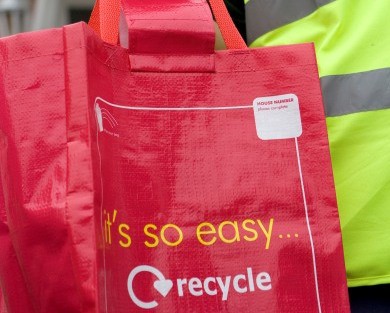Under the system, which was amended by the government in 2006 to reflect the introduction of other legislative drivers to boost recycling and reuse, waste disposal authorities (WDAs) pay the credits to waste collection authorities (WCAs) – and third parties – when they divert waste from landfill for recycling or reuse, while collection credits can also be paid by WCAs to third parties.
The value of the disposal credits is worked out as equivalent to the average per tonne cost of the WDA's most expensive form of waste disposal, taking into account inflation.
The 2006 changes also gave councils the option to introduce alternative arrangements to solely using the statutory recycling credits system, and the WIN survey revealed a number of reasons why councils were now choosing to make this move.
In particular, WIN's report on the survey explained: “Recycling credits are often now one part of a more complex set of cost-sharing arrangements, often involving sharing of sorting, bulking or treatment costs; material income being split in some way; or joint budgets for e.g. communications, innovative pilots and even member development”.
“Responses indicated that budgetary interactions in county/district groupings have outgrown the statutory system,” it added.
The research also discovered that some councils were setting credits at different levels to reflect WCA's performance or the materials collected, with Somerset considering introducing “super credits”.
These would be “for enhanced kerbside collections that move performance beyond their current best practice threshold of 200 kilogram per household per year for dry materials,” WIN explained.
However, the survey did reveal there was still a role for the credits, with county councils using them as “shelter” from increasing Landfill Tax costs.
For example, Buckinghamshire county council reported that: “The county investing in the districts was seen as a preferential way to reach high recycling and composting targets and so avoid potential costs and fines from landfill, taxes and LATS”.
Cumbria
Among the councils who had introduced alternative arrangements, the survey looked in detail at Cumbria county council, which in April 2009 introduced a 'Recycling Reward Scheme' for its six district councils within a strategic waste partnership.
As part of this, the WCAs are paid per percentage point they increase their recycling and composting rate by, with the reward starting at £20,000 per percentage point for a rate of 0% to 19.9%, and increasing to £35,000 per percentage point for between 40% and 49%.
The county council is aiming for a 55% recycling and composting rate and told WIN that: “The objective of the Recycling Rewards Scheme is to assist district councils to increase recycling and composting rates and subsequently to maintain these activities at levels which optimise the environmental and economic performance of the whole waste management service: collection, recycling, composting, treatment and disposal.”
“The aims, which will enable the objective to be met are as follows: increase the percentage of household waste recycled and composted; promote waste minimisation; incentivise low performing authorities; reward high performing authorities; allow for the difficulties of working in more sparsely populated areas; recognise the Landfill Allowance Trading Scheme as the key driver in all landfill diversion activities; and, promote efficiency,” it added.
Lancashire
The survey also provided a case study of Lancashire county council's 'Property Based Payment Mechanism' – a legal cost sharing agreement which the WDA has with 11 of its 12 WCAs within the Lancashire Waste Partnership.
Under the arrangement, the WCAs have to satisfy a number of criteria including offering three-stream collections, limiting residual waste collections to 240 litres a fortnight, collecting a minimum of six recyclables and offering all collections on the same day.
In return, the county council helps to share the costs of the WCAs improving their collection services to meet the requirements of the Partnership's strategic waste plan.
“As a result of having an established partnership and well developed strategy we have been able to coordinate funding applications for PFI credits and various rounds of Defra and WRAP funding,” the council told WIN
“This has helped develop the infrastructure within the county and support promotional material,” it added.
Schedule 2
In one case where a county council does still pay its WCAs based on recycling credits – in Leicestershire – the survey found that the government's ongoing overhaul of Schedule 2, the regulations making councils liable to dispose of waste from institutions such as hospitals and schools for free (see letsrecycle.com story), was expected to have an impact on the amount of credits paid.
It said: “If Defra, in their consultation on Schedule 2, introduce the possibility that disposal as well as collection costs be recovered from Schedule 2 organisations then this may have a significant impact on the amount of credits paid to WCAs and third party organisations as the WDA would no longer bear any disposal costs.”
“Based on the polluter-pays principle, the Schedule 2 organisation would make a direct saving in their disposal costs from reduction, reuse or recycling i.e. offer a greater incentive than currently may be the case,” it added.







Subscribe for free